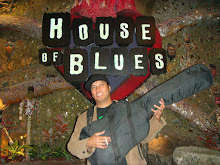supreme court case 03-1454
In 1996, California voters passed Proposition 215 Compassionate Use Act(Prop 215), which legalized marijuana for medical use. Within prop 215, it is stated that, with a doctors recommendation, patients are able to posses, use and cultivate marijuana for medicinal use. The law that passed has, since then, conflicted with federal laws’ Controlled Substaces Act(CSA), which banned the possession of marijuana. The Drug Enforcement Administration(DEA) seized marijuana from a patient. A group of marijuana patients then sued the DEA and the US Attorney General John Ashcroft in federal district court.
Respondents Raich and Monson, California residents who both use marijuana which was perscribed by doctors for serious medical conditions. DEA Seized and destoyed Monson's cannabis plants. Respondents claim that the DEA, who then performed the seizure under the CSAwas in violation of the Commerce Clause and other constitutional provisions. The district court denied the respondents' motion for the injunction. but the ninth circuit court reversed. they found that the CSA is an unconstitutional exercise of Congress'
Commerce clause authority as it only applied to the intrastate, non commercial cultivation and possession of cannabis for personal medical uses. as recommended by a doctor, pursuant to prop 215. Ninth circuit relied on the USvsLopez court case(514 US 549) and US vs Morrizon(529 US 598), recognizing that this cas of purely local activities was beyond the reach of federal power.
9th Circuit court of California ruled in favor of Raich. However, US government filed petition with the US supreme court to appeal the case.
www.law.cornell.edu/supct/html/03-1454.zs.html
www.oyez.org/cases/2000-2009/2004/2004_03_1454
Das große Buch der Gartengestaltung (3421040079)
3 years ago

No comments:
Post a Comment